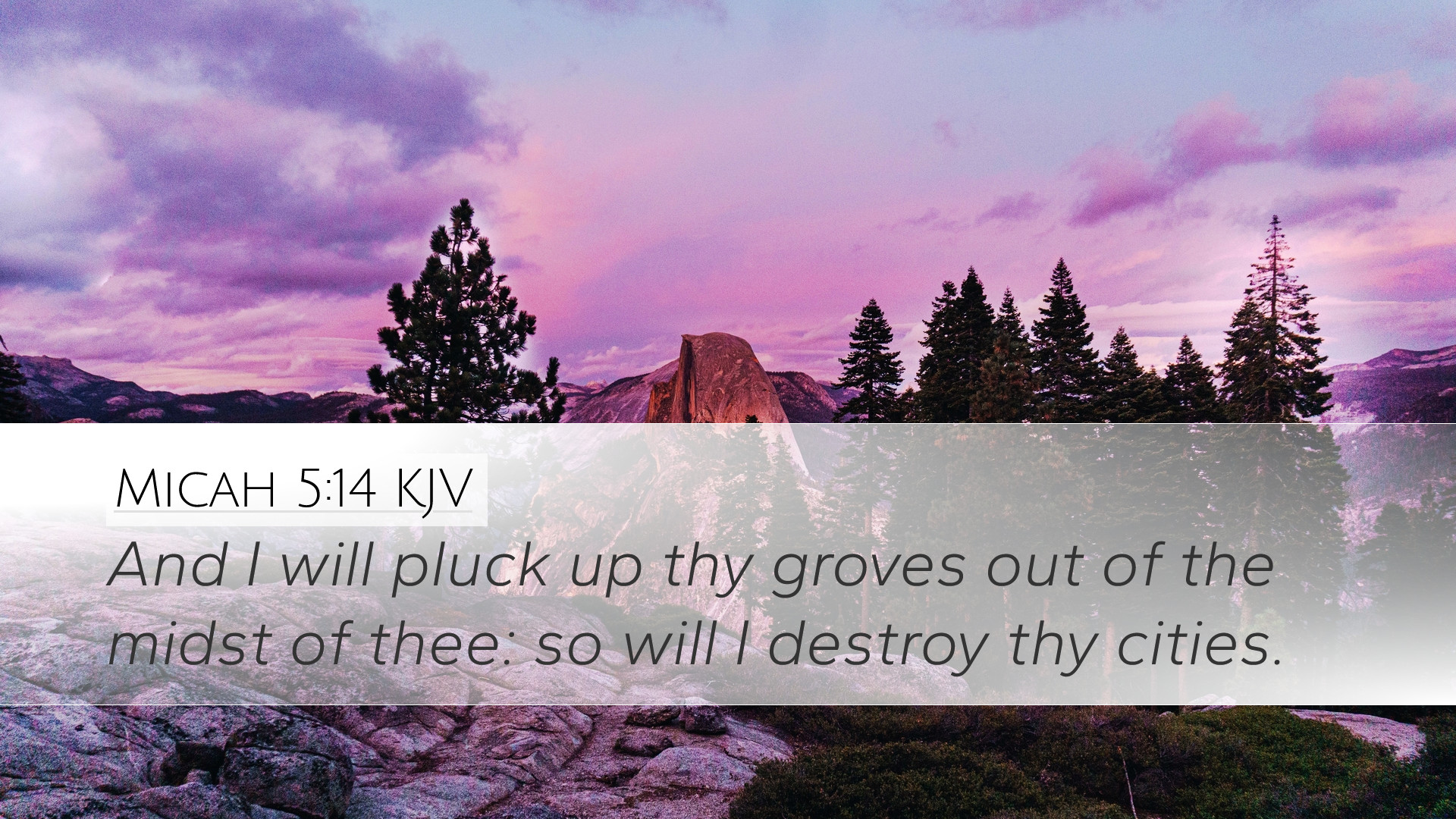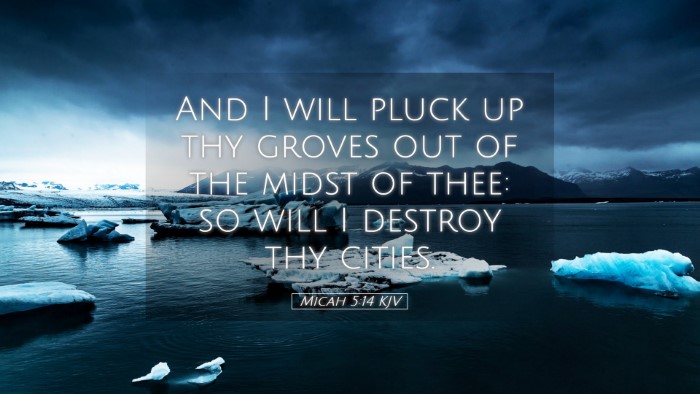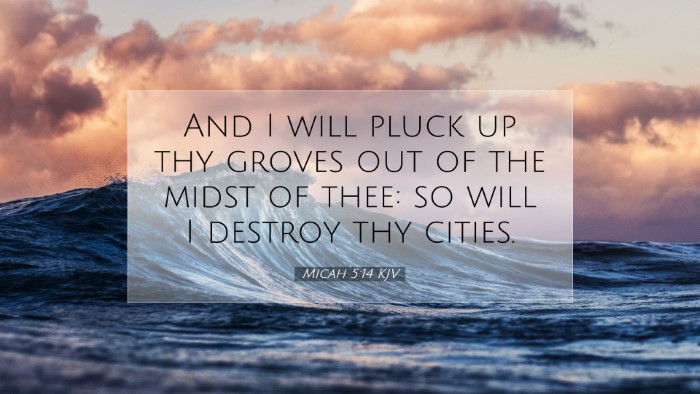Old Testament
Genesis Exodus Leviticus Numbers Deuteronomy Joshua Judges Ruth 1 Samuel 2 Samuel 1 Kings 2 Kings 1 Chronicles 2 Chronicles Ezra Nehemiah Esther Job Psalms Proverbs Ecclesiastes Song of Solomon Isaiah Jeremiah Lamentations Ezekiel Daniel Hosea Joel Amos Obadiah Jonah Micah Nahum Habakkuk Zephaniah Haggai Zechariah MalachiMicah 5:14
Micah 5:14 KJV
And I will pluck up thy groves out of the midst of thee: so will I destroy thy cities.
Micah 5:14 Bible Commentary
Commentary on Micah 5:14
Verse Text: "And I will pluck up thy groves out of the midst of thee: so will I destroy thy cities."
Introduction
The book of Micah is notable for its powerful prophetic messages that address the social injustices of Israel and Judah. Chapter 5 brings forth a pivotal prophecy concerning the Messiah's coming and hints at the divine judgment upon corrupt practices within the nation. Micah 5:14 captures the essence of God's judgment against idolatry and disobedience while laying a foundation for renewal and restoration.
Contextual Analysis
The context of Micah chapters 5-6 includes a discourse on Israel's future and the Messiah's birth in Bethlehem. These verses elucidate God’s intent to act decisively against the nations that oppress His people. As Micah discusses the fate of Israel amidst growing corruption and reliance on idolatrous practices, the verse stands as a stark reminder of divine retribution intended to purify His people.
Exegesis of Micah 5:14
-
Divine Action:
The phrase "I will pluck up thy groves" symbolizes God's active engagement in removing places of idolatrous worship. These groves, often associated with Canaanite worship, denote a prevalent cultic practice that led the Israelites away from Yahweh. Here, God's commitment to cleanse His people is evident.
-
Judgment on Idolatry:
Idolatry is often the focal point of prophetic denunciation in the Old Testament. As Albert Barnes notes, the "groves" were sites of idolatrous altars that led many astray. This divine judgment reflects God's unchanging stance against practices that defile true worship and relationship with Him.
-
Consequences on the Cities:
The latter part of the verse, "so will I destroy thy cities," suggests that the consequences of Israel's idolatry extend beyond personal worship; they affect the social and communal fabric of the society. Adam Clarke emphasizes that these cities, representing societal structure and human achievement, face destruction due to their moral failure and alignment with pagan practices.
Theological Implications
-
God's Holiness and Justice:
Micah 5:14 speaks volumes about the holiness of God and his demand for purity among His people. Matthew Henry remarks that God is determined to separate His people from sin, embodying the principle that divine justice will not condone idolatry.
-
Restoration through Judgment:
The act of removing groves and destroying cities is not merely punitive; it is also restorative. God's end goal is to restore His people to a proper relationship with Him, achieved through judgment. The ultimate aim highlights His commitment to their spiritual renewal.
Pastoral Insights
For pastors and church leaders, Micah 5:14 presents a powerful message regarding the nature of true worship and the perils of syncretism. Leaders are encouraged to examine their communities for any ‘groves’—practices or ideologies that lead people away from authentic worship of God. The call is toward accountability and the pursuit of holiness in both personal and corporate worship.
Application for Believers
The relevance of Micah 5:14 is profound for contemporary believers. As Christians, the call to rid our lives of idolatrous practices holds paramount significance. It reflects the idea that spiritual life must align with God's commands. Believers should endeavor to identify and dismantle any 'groves' that have crept into their worship, fostering true allegiance to God.
Conclusion
In summary, Micah 5:14 serves as a poignant reminder of God's unwavering stance against idolatry and the consequences of sin on both individual and communal levels. The interplay between judgment and restoration highlights God’s desire for His people to return to Him in purity and devotion. As we reflect on this powerful verse, may we be inspired to seek holiness in our lives and within our communities, continually striving for a deeper relationship with our Creator.


